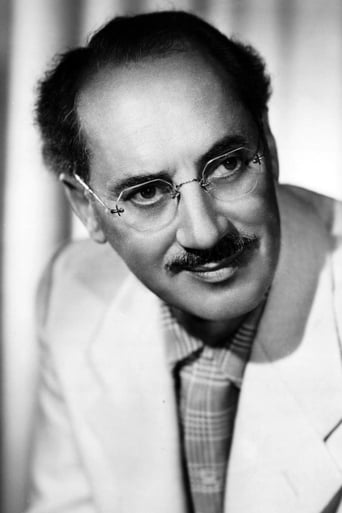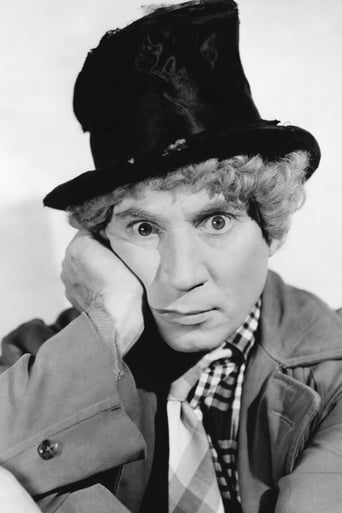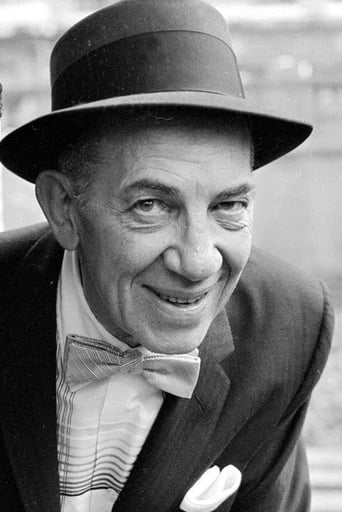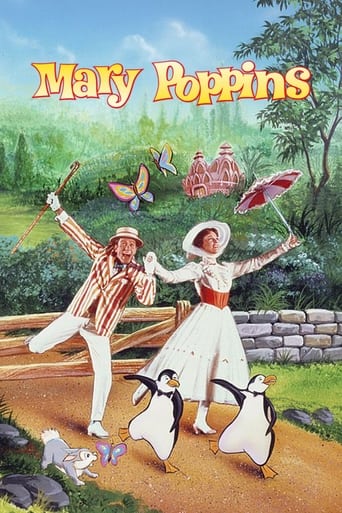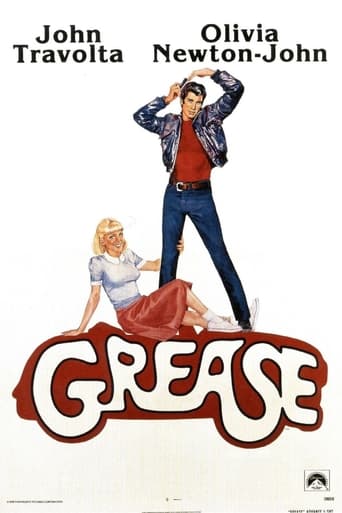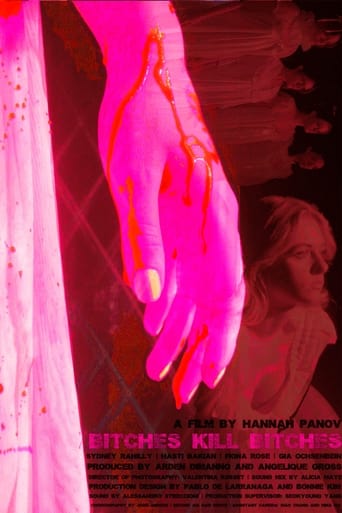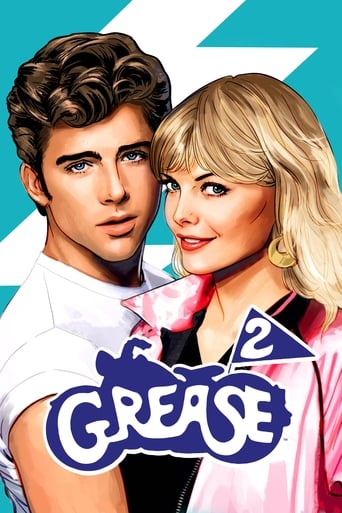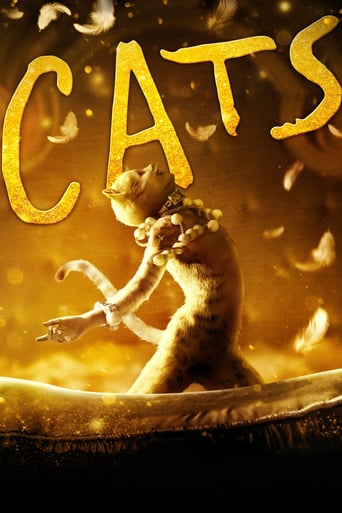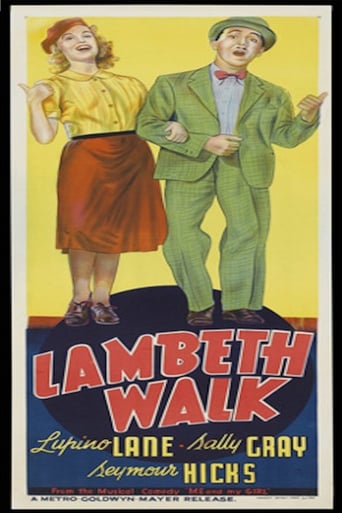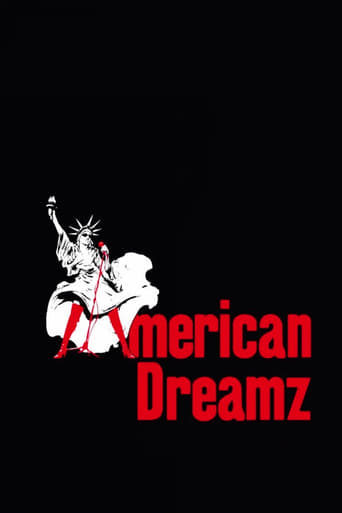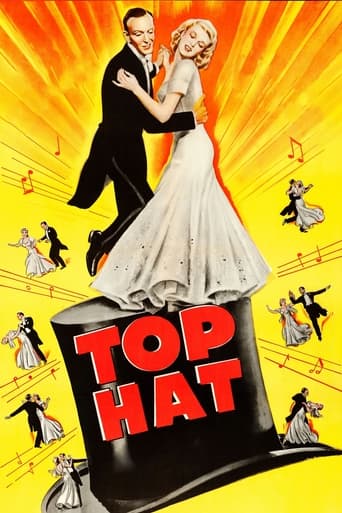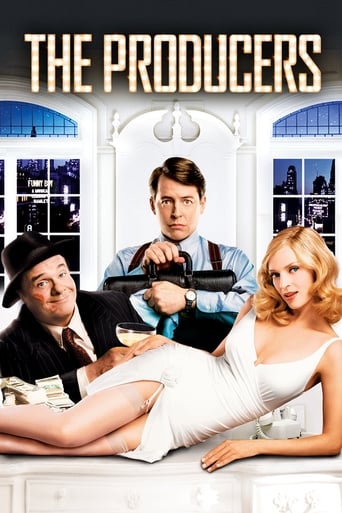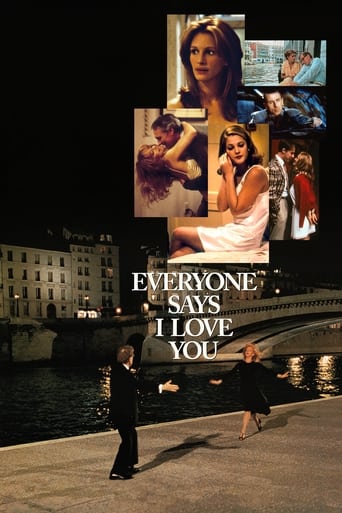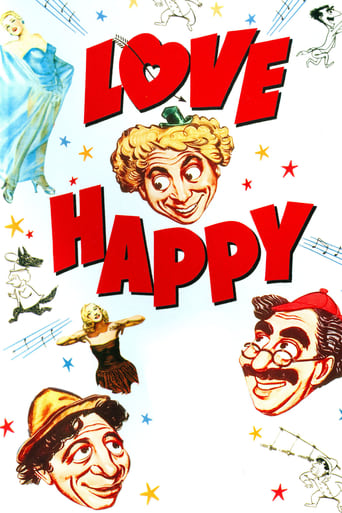
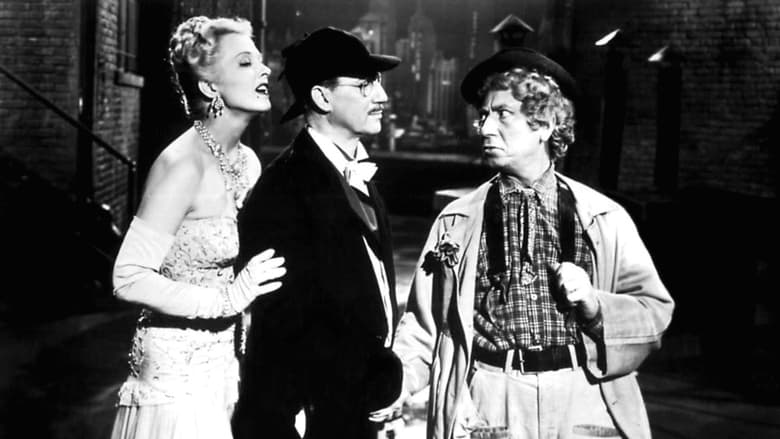
Love Happy (1949)
The Marx Brothers help young Broadway hopefuls when they get mixed up with gangsters due to a tin of sardines containing Romanoff diamonds.
Watch Trailer
Cast


Similar titles
Reviews
You won't be disappointed!
Fantastic!
Like the great film, it's made with a great deal of visible affection both in front of and behind the camera.
The plot isn't so bad, but the pace of storytelling is too slow which makes people bored. Certain moments are so obvious and unnecessary for the main plot. I would've fast-forwarded those moments if it was an online streaming. The ending looks like implying a sequel, not sure if this movie will get one
"Love Happy" has been classified as a Marx Brothers movie. Well, I guess it is, considering Harpo, Chico, and Groucho all appear in it. But most of the focus is on Harpo - Chico and Groucho have very small parts, which possibly explains why Chico and Groucho don't seem to be going all out in most of their limited scenes. Harpo, on the other hand, does go all out; he's in fine form, though his enthusiasm may be because he also wrote the movie's story. With that in mind, and that the legendary Frank Tashlin was one of the writers of the finished screenplay, one would probably expect the movie to be pretty funny. There are some chuckles spread throughout, and the movie does move from scene to scene pretty quickly that ALMOST hides the fact that there isn't a terrible amount of plot. Still, it's a far cry from the brothers' movies from the previous decade. While Groucho's disowning of the movie upon seeing it may have been a somewhat harsh reaction, I would only recommend the movie to serious Marx Brothers fans. But I'll admit it's a lot better than the brothers' last movie collaboration, "The Story Of Mankind".
I disagree with the put downs of this film by some viewers, for a very simple reason: I enjoyed watching it and found it funny. Sure, the plot is a little weak, but who watches Marx Brothers films for the plot? Actually, the plot is stronger than in many of their movies. Groucho's role is certainly weak, but this may be Harpo's finest film, which showcases his beautiful comic style. Chico does fine, too. And they both deliver some wonderful musical performances. The scene near the end on the rooftop amid the Times Square advertising signs is delightful. There seems to be an obvious element of "product placement," though I don't know whether the filmmakers got paid for this, but that all adds to the peculiar humor of the scene. It's been a very long time since I first saw the classic Marx Brothers films, at least as an adult who could appreciate them. Back then they were funny. But I can't say they crack me up these days, as the gags have gotten old. So it was wonderful to find this Marx Brothers film I hadn't seen, and to laugh at them again. This is a funny film. Period.It is a bit sad knowing this was their last film, also knowing the great young comedy writers who were about to get started in live television, including Mel Brooks and Woody Allen. If only their talent could have been turned to writing more scripts for the Marx Brothers. Instead, they wrote for Sid Caesar's television shows, which in some ways were the heirs to the Marx Brothers humor. I think I will watch Love Happy again, soon. I want to watch Harpo's performance more closely. It seems to me he was the last of the silent film comedians, in the tradition of Chaplin and Buster Keaton, whose humor was all in their body language. And this was his last great work.
As a "Harpo stand alone movie" this picture works. Harpo gets way more screen time then in any of the Marx brothers movies (he is in fact the main protagonist) and he is as funny as usual.Sadly as a "Marx Brothers" movie it works poorly. Chico play much smaller role then usual and don't have nothing funny to do (there is a callback to the Ice-cream scene in "Day at the races" which came out like a poor attempt to get a chip laugh) and Groucho is for about 10 minutes all together, and you can tell his character was force into the script so it would had all three Marx brother. In fact there isn't a single scene with all three of them and Groucho nearly interacts with his brothers. Big mistake.If your a Marx Brother fan Its simply distracting and I think it would work way better as a Harpo solo movie (like "A girl in every port" was for Groucho), but at the same time I must admit it was entertaining and Harpo made me smile... as usual :)
LOVE HAPPY (United Artists, 1949), a Mary Pickford presentation, directed by David Miller, became the 13th and final collaboration of Marx Brothers comedy team, this time with a few alterations, especially in featuring the silent one, Harpo, as the leading character, with Chico and Groucho taking on lesser responsibilities. While this could have been simply a Harpo Marx comedy, following Groucho's solo effort in COPACABANA (1947), someone probably didn't think it possible to have Harpo carrying on 85 minutes of screen time without his brothers, in spite the fact that he's credited as author of the story. The final result is a musical-comedy labeled the least liked of all the Marx Brothers movies. Overlooking it's negative reputation, it be best to consider the possibilities of what the story has to offer, with some fine comedy material thrown in, that actually keeps this one from being a total disaster.The story opens in typical 1940s fashion, with Groucho as Detective Sam Grunion relating to the movie audience as to how he had spent eleven years investigating a million dollar theft of the Ramanoff diamonds, followed by his introduction of numerous characters, including Mike Johnson (Paul Valentine), both manager and leading man; Maggie Phillips (Vera-Ellen), his dancing partner; Bunny Dolan (Marion Hutton), a singer and Maggie's best friend; and finally Harpo (Harpo), a kindly hobo who happens to be love happy for Maggie. He helps the troupe by supplying them with stolen food. Also in the company is Faustino the Great (Chico Marx), a mind reader. Madame Egilichi (Ilona Massey), the leader of a gang responsible for the stolen jewels, is told by Throckmorton (Melville Cooper), who uses a delicatessen as a front, that the diamonds have been placed in a sardine can marked with a cross. It so happens that Harpo had taken this can, along with other canned goodies, for his hungry actor friends. Because the diamonds are somewhere in the theater, Egilichi finances the show, leading to a merry slapstick chase on the rooftop as Egilichi, and her henchmen, the Zoto Brothers (Bruce Gordon and Raymond Burr) go after Harpo and Faustino, who have both the real as well as the phony diamonds in their possessions, while Sam Grunion makes his reappearance before concluding his narrative to the great diamond caper. And watch for the surprise ending.LOVE HAPPY is actually not an attempt to revive the Marx Brothers on screen, for that their best work was already behind them, yet it shows how far they have come, twenty years from their screen debut (1929). Age has caught up with the brothers this time around. Considering the changing times, especially after World War II, their brand of comedy might be, by 1949 standards, old-fashioned, far-fetched or overly familiar. For the first time on screen, Groucho looks more natural, sporting a real mustache, instead of his traditional black tape over his lip. Chico continues to be in character, Italian accented, pointy hat, and once again translating Harpo's mimed message distress call following Maggie's abduction. Chico does provide moments of nostalgia by refusing a can of sardines in favor of his DAY AT THE RACES (1937) product of "Tutsi-Fruitsi ice cream." Aside from playing the piano, Chico offers few comedic moments, such as losing a game of cards to a dog(!). The Harpo here breaks away from his traditional characterization, being toned down a bit and being a range between the old Harpo to that of the sentimental likes of Charlie Chaplin. Key scenes find him falling victim to Egliouchi's thugs as they attempt to empty out his pockets for the diamonds, taking out everything imaginable, including a live dog! When all else fails, poor Harpo is put through the torture test such as smoking rope for six straight hours; spinning in a washing machine filled with water; tied to a revolving rack; being tempted by food at a distance while starving and tied to a chair; and finally the William Tell test. Even Egilichi's attempt to vamp him nearly works, but Harpo uttering a word is totally impossible.On the musical program, there's "Love Happy" (sung during opening credits); "Mama Wants to Know," "Willow Weep for Me," "The Sadie Thompson Number," "Gypsy Love Song" (piano solo by Chico) by Franz Lehar; "Happy Birthday to You," "Swanee River" by Stephen Foster (Harpo on the harp) and "Love Happy" (reprise, closing credits).Paul Valentine, Raymond Burr and Marilyn Monroe receive special introductory billing during the opening credits. Although still new to the business, this is not their movie debuts, yet the starring status of Burr and Monroe, would only be a few years into their futures. Monroe's very brief scene with Groucho as a lady in distress constantly being followed by men is truly a highlight.So ends the movie careers of Groucho, Harpo and Chico as a team. With this being their last, it was one of the first to be distributed onto video cassette during the early 1980s, notably with the video storage case featuring Marilyn Monroe and Groucho Marx on the cover, and currently available on DVD (with restored footage). For its cable TV broadcast history, it alternated between American Movie Classics (1995-2000) and Turner Classic Movies. In spite of an odd mixture of gags, ranging from good, bad to disturbing, LOVE HAPPY has enough ingredients to satisfy any Marx Brothers fans. (**1/2)


